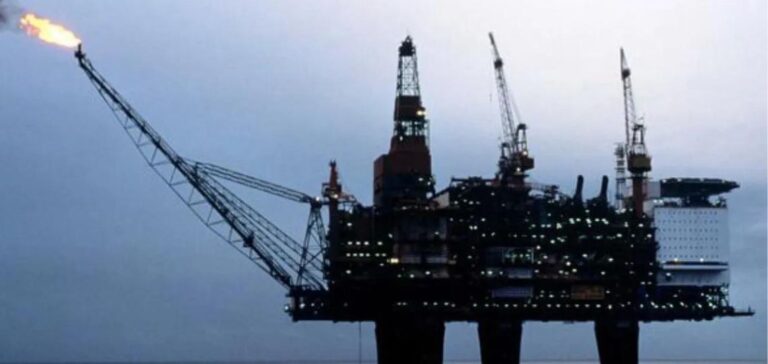Plugging inactive oil wells in U.S. waters in the Gulf of Mexico would cost more than $30 billion, but would be much cheaper by focusing on those closer to shore, which are more at risk to the environment, according to a study released Monday.
Researchers based in the United States have counted, in this article published in the journal Nature Energy, some 14,000 wells that no longer produce hydrocarbons but have not yet been plugged. A total of 82,000 wells have been drilled in this area, of which 64,000 have been permanently plugged. They are located off the U.S. coast in federal waters or under the jurisdiction of the states of Alabama, Louisiana or Texas.
Inactive wells should normally be sealed with cement to prevent the escape of hydrocarbons or other substances. The environmental risks are higher the closer they are to the coast: an oil spill causes more damage and methane, a powerful greenhouse gas, is more likely to reach the surface in shallow waters. In 2010, the explosion of an oil platform of the British BP in the Gulf of Mexico had killed 11 people and led to unprecedented pollution of the coast. A leak from an inactive well would be rather “small and regular” in comparison, the authors note, although the ecological impacts may have “similarities.”
“We put the future cost of plugging in the Gulf of Mexico at more than $30 billion,” the scientists calculated. However, closing wells in shallow waters “would cost much less” while they “pose higher environmental risks.” For the 13,000 or so wells close to the coast, it would cost about $7 billion. It is when the 1,000 deepwater wells are included that the bill would rise because of their complexity and the difficulty of subsea operations.
“It becomes much more expensive to plug wells as you go farther offshore and deeper, with the potential benefit diminishing because the environmental risks are less,” summarizes Gregory Upton of Louisiana State University, co-author of the study. “The implication, in terms of public policy, is that it would be better to focus on those in shallow, near-shore waters,” he concludes.
The authors point out that the vast majority of wells not yet plugged in federal waters were at one time operated by a “supermajor”, one of the giants of the sector (Chevron, Shell, ExxonMobil, ConocoPhillips, BP, TotalEnergies and Eni). So these are companies that will be able to afford the cost of the plugs, they note.






















